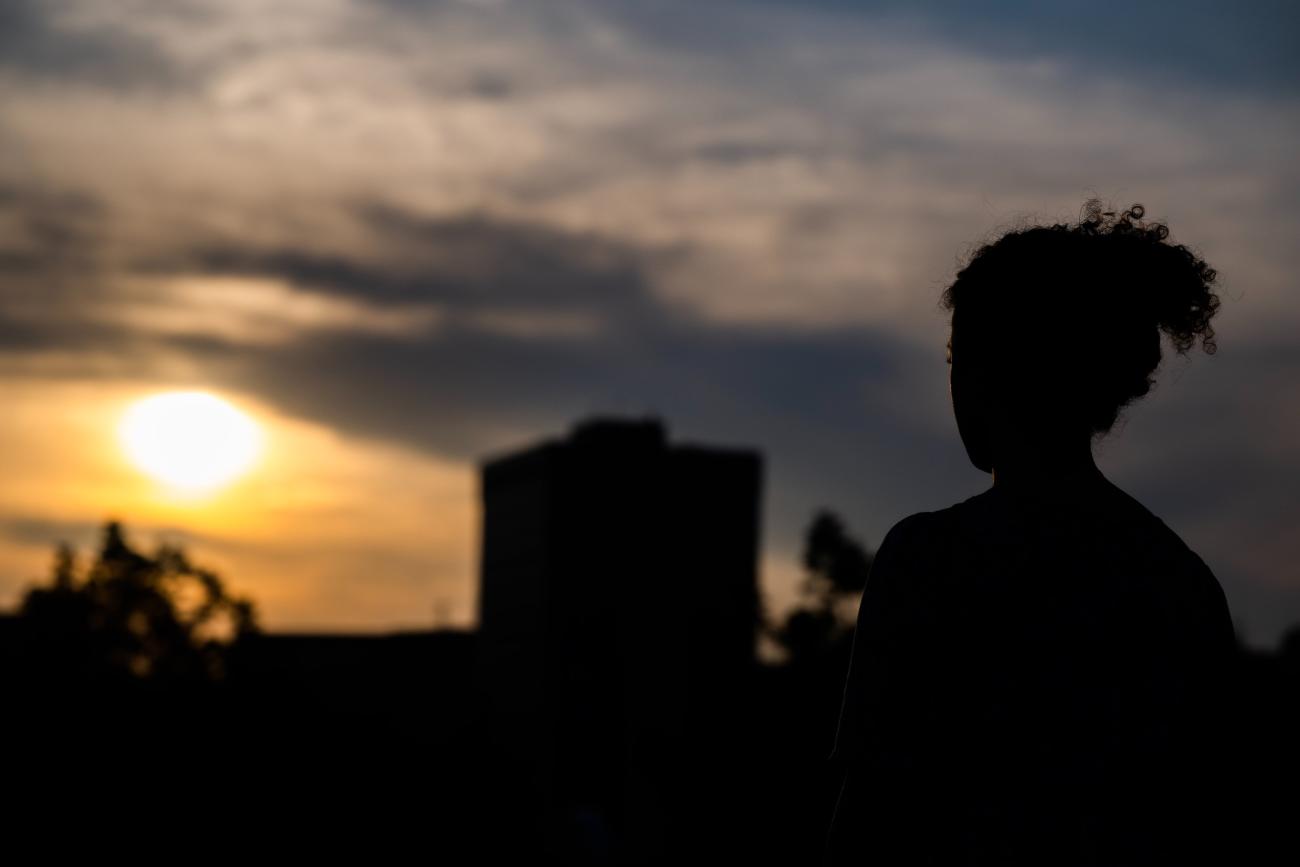The Judge’s Encouraging Words Will Stay With Me Forever

UNDP and UNMIK are supporting the Kosovo judiciary to strengthen the judicial practice in judging domestic and gender-based violence cases.
When I received the invitation to do this interview, I asked myself, “What could I say and why would others care?”
I often tend to downplay my own importance. Psychologists told me it was a weakness and that regaining my self-confidence would improve my constant anxiety. I’m M.D. I’m also a victim of domestic violence.
My fight for my freedom lasted seven years — I like to say, “seven damn years!” Dealing with abusers is difficult, of course, but dealing with yourself is the hardest. It was only when I left that cursed house, after many years of physical and mental trauma, that I found myself in a state of shocked disbelief and asked myself, “How did I allow this to happen?”
Maybe it was the influence of my surroundings. The rural environment imposes a sense of shame on you that’s hard to deal with, because that’s how mothers bring up their daughters. That infamous sentence, “A woman must suffer” — that killed me. No one ever told me, “Conquer the world! You’ll be a great person.” So, I never received encouragement.
.jpg?auto=webp)
As with many cases of domestic violence, I escaped my ‘circumstances’ when a child became involved. I gave birth to a son after four years of marriage. When I got pregnant, it was unplanned, unexpected, and then came the classic question of whether the child was his. That’s when I knew I had to make a plan to escape from that hell. Getting to know my son was my only joy in these seven years. His innocence is my greatest love, as well as my greatest concern.
The idea that he, the abuser, could educate him, that I wouldn’t be the one to teach him, was suffocating. I started to slowly to do the groundwork. I cautiously began to prepare my parents, and I got back in touch with my friends. Fortunately, one of them is a policewoman. She carefully guided me through the steps of seeking protection without involving my family in everything. I was most afraid of what might happen to my parents and whether they would be attacked. My fear of hurting my child also caused me to panic, and that made me give up on a couple of occasions.
Eventually, I decided to go to a shelter. The next time he went out to celebrate with his ‘friends’, I ran away. Thank heavens I never looked back! From that point on, I made my decisions with the support of others, and that gave me with strength to keep moving forward. The shelter showed me that I wasn’t alone, and the huge empathy I received from the professionals there changed my outlook on the world around me. The police provided me protection, especially in determining measures against my abuser.
The trial was the pinnacle of it all. The judge was a woman, and she provided encouragement that will live with me forever. Her words are still ringing in my ears: “The
abuser deserves four years in prison for the physical and psychological injuries he inflicted upon this ‘brave’ woman who has been fighting for her freedom.”
He’s still in prison, and of course he keeps sending a lawyer to try and get me to visit him. I don’t want to see him, not even his shadow. I still wake up gasping for air, and that accumulation of stress takes its toll. But I’m happy for my son who’s growing up in a normal environment.
My experience is seen as a ‘success case’, and when I heard that I would be held up as a positive example, I struggled to believe it. After enduring seven years of abuse, at least I have that!
I regularly see a psychotherapist and recount my experiences. Whenever I can, I also try to advise others so that they never become victims themselves. I wish all women and girls - no matter how young - great courage and more strength than I had to fight this evil.
It’s something we should talk about, loudly for everyone to hear, and we should publicly identify abusers — they have no place in our society. Teach your children to open up, to be good people and not to be ashamed of anything, because only then will they be able to truly ‘conquer the world’.
This article was based on an interview with a domestic violence survivor. The survivor’s words have been edited for clarity and conciseness, while all effort has been made to preserve the integrity and accuracy of her original message.
UNDP and UNMIK are supporting the Kosovo judiciary to strengthen the judicial practice in judging domestic and gender-based violence cases. Support is given through capacity development, review of the judicial practice on such cases, and access to digital platforms and tools for legal research and documentation. Access to the legal research platform "Lexdoks" has been provided to more than 500 judges and prosecutors, in an effort to unify judicial practices and ensure timely and just decisions in court, with a specific focus on cases related to domestic violence. Through this platform, court cases such as this one will be available to the judges and prosecutors and can serve as valuable examples and models of justice.
Written by Danijela Mitic
Edited by Jack Butcher
Photos design by Enis Mustafa
Photos by Arben Llapashtica


